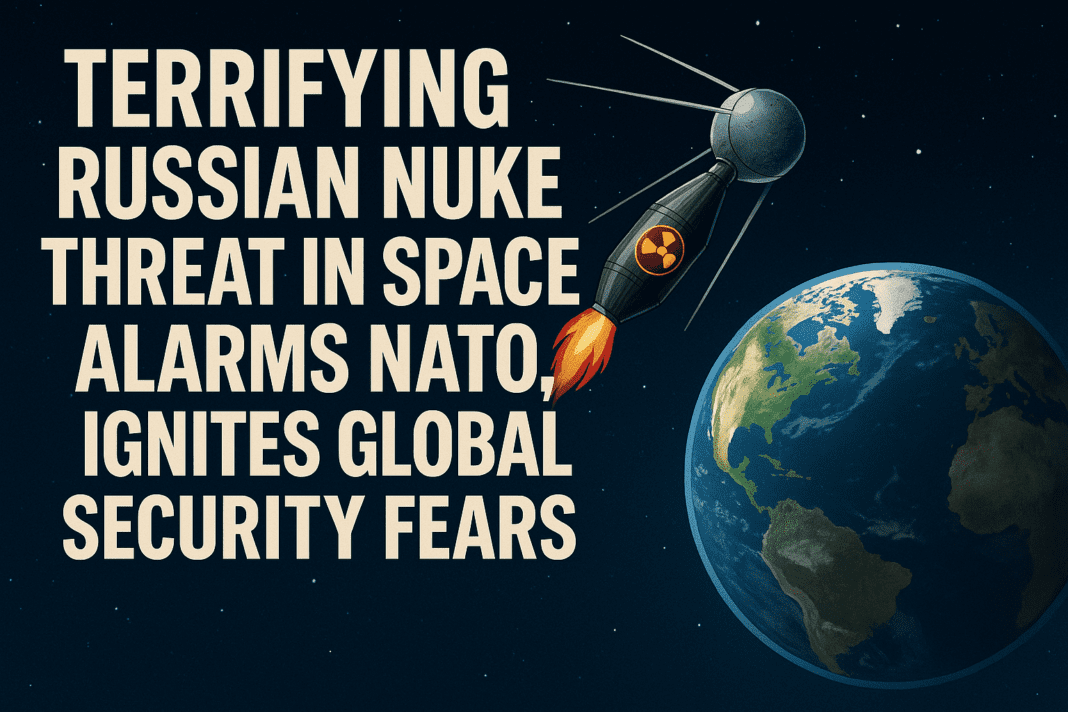High above Earth, in geosynchronous orbit, a Russian satellite named Cosmos 2533 silently moves through space.
Dangerous Changes in Space
Nicknamed “Sput-nuke,” this satellite is believed to carry a weapon powerful enough to damage or destroy many satellites. At the same time, another country is investing huge amounts of money into new space technologies—including weapons designed to attack satellites.
These are called Anti-Satellite Weapons, or ASATs. To face these growing threats, many believe a united space Alliance is needed to protect satellites and ensure space remains safe and peaceful for everyone.
Because of these growing dangers, many experts believe there should be a strong international Alliance to protect space. Such an Alliance would bring together friendly countries to defend satellites and keep space peaceful. It would help stop dangerous actions and protect the space systems we all depend on every day.
ASATs can have dangerous effects on daily life. They can destroy systems we depend on every day—like GPS navigation, satellite-based weather forecasting, and communication tools. These systems are not just used for maps or talking on the phone.
They help airplanes fly safely, track storms, and even support farming with satellite images. The global space economy, which is now worth over $1.8 trillion, depends on space being safe and open for all.
Terrifying Russian Nuke Threat in Space Alarms NATO, Ignites Global Security Fears
In 1967, many countries, including the U.S., signed a treaty promising to keep space peaceful. This was called the Outer Space Treaty. It banned the use of weapons of mass destruction in space and encouraged peaceful exploration. In 2020, another agreement called the Artemis Accords was launched. It built upon the 1967 treaty and aimed to protect space exploration for the future. More than 50 countries have signed these accords.
But not every country has agreed. Some have rejected efforts to limit weapons in space. One country even used its veto power at the United Nations to stop a rule against putting dangerous weapons into orbit. This shows that peaceful words alone are not enough to stop harmful actions in space.
A New Alliance for Space Defense
To deal with these growing risks, there is a strong case for a new kind of military alliance in space. This alliance would be called the Artemis Alliance. Its goal would not be to replace peaceful treaties, but to defend them. It would bring together countries that believe in safe, open, and peaceful use of space. These nations already work together through existing defense agreements and have strong space programs.
Switzerland Steps In as Tensions Mount Over Militarization of Space
The Artemis Alliance would include countries such as the U.S., Canada, Australia, Japan, South Korea, France, the United Kingdom, and New Zealand. These nations already cooperate on space missions and have mutual defense relationships. Over time, more countries could join, especially those developing new space programs like India, Saudi Arabia, and the UAE.
The mission of the alliance would be clear: stop attacks in space before they happen, and defend satellites and space systems from threats. The alliance would also speak out against dangerous activities in international meetings and could take serious actions—ranging from trade restrictions to military responses—if space is put at risk.
This idea is not new. On Earth, countries work together to keep sea trade safe through international laws. In the same way, space needs a team effort to protect the systems that the modern world depends on. Peaceful treaties and agreements are important, but they need strong partners willing to defend them when threats grow.
Spute-Nuke Poses Real Risks
The dangers in space are not science fiction—they are real and already happening. One country tested a weapon in 2021 that created debris, putting even its own astronauts in danger. In 2022, another satellite believed to carry weapons was launched. By 2024, another attack-capable satellite was placed in the same orbit as a satellite belonging to the U.S. government.
Russia’s Nuclear Space Weapon Puts the World at Risk, U.S. Warns
Reports from space command agencies say that some countries are quickly building a variety of space weapons. These include missiles that can shoot down satellites from Earth, lasers that can damage satellite cameras, jammers that block signals, and even microwave weapons that can destroy a satellite’s circuits without an explosion.
In 2025, some of these electronic weapons have already been used to mess with satellite signals, causing flight delays and GPS problems. These kinds of attacks show that space is not just a peaceful place anymore. Countries are treating satellites as military targets.
Words and rules are not enough to stop Sput-Nuke threats. Countries that care about space being safe must be able to take real actions—before it’s too late. That means stopping space weapons before they are used, and defending satellites before they are destroyed.
Space is no longer just about exploration. It’s about protection, safety, and survival. The systems we use every day on Earth—whether it’s calling someone, finding directions, or tracking the weather—are all linked to satellites above us. Without strong protection, those systems could disappear in seconds.
That’s why a military alliance for space, like the Artemis Alliance, is not a choice—it’s a necessity.




